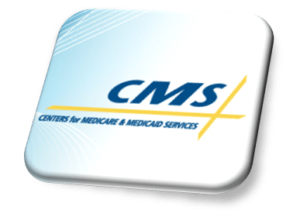 A Medicaid rule adopted in 2014 that establishes a federal standard for quality of patient care beyond the institutional setting just got a new start date. Originally slated to go into effect in 2019, the states now have until 2022 to comply with the standards of care, according to the Centers for Medicare & Medicaid Services (CMS).
A Medicaid rule adopted in 2014 that establishes a federal standard for quality of patient care beyond the institutional setting just got a new start date. Originally slated to go into effect in 2019, the states now have until 2022 to comply with the standards of care, according to the Centers for Medicare & Medicaid Services (CMS).
The rule stipulates that elderly and disabled Medicaid enrollees should be given every opportunity by their home states to take part in community life in a meaningful, autonomous way (rather than being edged into nursing homes). For instance, they should have the opportunity to seek competitive, mainstream employment, maintain control of their finances, and be offered a range of housing options (beyond facilities that predominantly house disabled individuals).
Can “a system that wasn’t ready” be ready in time?
Matt Salo is executive director of the National Association of Medicaid Directors. “We have long been on record saying that the regulation was hopelessly unrealistic in its time frame,” he told California Healthline. “Delaying it actually helps consumers because the underlying regulation was going to push too many changes too fast into a system that wasn’t ready.”
Despite nearly all of the states’ unreadiness (which also for many includes a state of being underfunded), and therefore many state officials celebrating the postponement, not everyone in healthcare thinks pushing back the starting gate is a good thing.
Some see deferment as “victory for the status quo”
Gary Blumenthal is CEO of the Association of Developmental Disabilities Providers. He sees the deferment of the federal rule’s implementation as “a victory for the status quo and for states reluctant to embrace the [new standards].” He told California Healthline that assisting disabled individuals in procuring employment in mainstream businesses does — of course — result in a higher cost for the states. But — of course — that does not make it any less worthwhile.
Since the rule’s adoption in 2014, some states had initiated independent attempts to change protocols to align with forthcoming federal law. Many attempts proved unsuccessful due to lack of funds, many found the status quo that Blumenthal referenced too tall to scale. For example, some state efforts focused on group homes that run “sheltered workshops” that have disabled individuals working apart from other employees, and often earning less than minimum wage.
The GOP’s American Health Care Act (AHCA), if passed by the Senate in the form approved by the House, would drain $880 billion from Medicaid over the course of a decade. The announcement by the Trump administration that the effective date for the Medicaid rule in question would be delayed by three years came just a few days after the AHCA cleared the House.
Could postponement become dismantling in time?
Some patient advocates fear the delay will turn into an extinguishment. And they worry about what that will mean for the patients the rule is designed to protect; Kathy Carmody, CEO of the Institute on Public Policy for People with Disabilities, is one such advocate. “We are disappointed,” she told California Healthline. She pointed out that Illinois (where the Institute is based) comes in at or near the bottom of various care markers for Medicaid beneficiaries eligible for services at home or within the community. Carmody says that just six percent of the state’s disabled Medicaid enrollees are currently working in a competitive employment setting.
“We were really hoping the rule would be a push from the federal government to help us evolve into the 21st century and get out of the mid-1980s where we are stuck,” Carmody said.
Only the Volunteer State is ready
Although the effective date for the rule has been delayed until 2022, states will still need to have their plans for implementation approved by the CMS by 2019. To date, Tennessee is the lone state with CMS approval in-hand.
This blog post is provided for educational purposes only and is not offered as, and should not be relied on as, legal advice. Any individual or entity reading this information should consult an attorney for their particular situation. For more information/questions regarding any legal matters, please email [email protected] or call 310.203.2800.